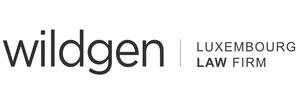Luxembourg law dated 21 July 2012 (henceforth known as the "Law") implements Directive 2010/24/EU (the "Directive") of 16 March 2010 concerning mutual assistance for the recovery of claims relating to taxes, duties, and other measures. The Law modernizes Luxembourg legislation in this field.
The scope of the Law encompasses all taxes and duties (except for social security contributions).
The Law first contains an organisational section which determines the competent Luxembourg authorities (i.e. Administration de l'enregistrement et des domaines, Administration des contributions directes, and Administration des douanes et accises) for the purpose of mutual assistance. Under the Directive, each Member State must designate its competent authorities. The list of all competent authorities will be published in order to facilitate the communication between Member States' administrations.
The mutual assistance between Member States, as such, comprises the exchange of information upon request, the automatic exchange of information, the assistance in the notification of documents, and the request for recovery.
The Luxembourg tax authorities are authorized to exchange, upon request, with other Member States' competent authorities any information which is foreseeably relevant for the recovery of taxes. Luxembourg tax authorities are not obliged to supply information:
- which they would not be able to obtain for the purpose of recovering similar claims arising in Luxembourg;
- which would disclose any commercial, industrial, or professional secrets; or,
- the disclosure of which would be liable to prejudice the security of or be contrary to the public policy;
These bear in mind that the mere fact such information may be held by a bank or similar institution does not fulfill the above criteria. These conditions are, thus, very close to those applicable under the Article 26 of the OECD Model Convention.
The Luxembourg tax authorities may also inform, without request, other Member States' competent authorities as to any refund of Luxembourg taxes (except VAT).
In accordance with the Directive, the Law determines the information to be included in a standard form accompanying the request for notification between Member States' competent authorities and in the uniform instrument permitting enforcement in the frame of a request for recovery.
In effect as of 1 January 2012, the Law replaces and repeals the law of 20 December 2002 which previously governed the matter.
The content of this article is intended to provide a general guide to the subject matter. Specialist advice should be sought about your specific circumstances.
We operate a free-to-view policy, asking only that you register in order to read all of our content. Please login or register to view the rest of this article.


